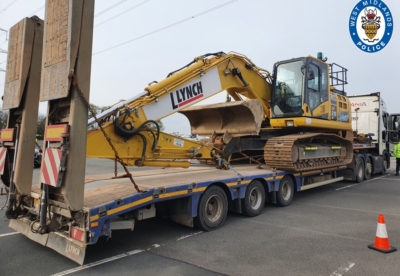The head of the National Infrastructure Commission said the time had come to make good decisions at pace and end a stop/start approach to infrastructure planning.
In the second five-year National Infrastructure Assessment, Sir John says the vital infrastructure the country needs can be delivered with the Government’s longterm funding guidelines.
But greater policy stability is needed to attract the private sector funding needed to supplement public investment.
At a political level in the wake of the decision to scrap Hs2 phase 2, the NIA calls for policy stability above all.
It says the government must set out a clear plan and stick to it to create certainty for private sector investors and build up effective supply chains.
It also wants to see pro-investment regulation. Where there is clear guidance from government on priorities, investment ahead of need and business models to support emerging technologies.
It proposed third leg of reform is speeding up the planning system for major projects, particularly energy transmission schemes
The Commission calculates that government’s commitment to a sharp increase in public sector investment in infrastructure to around £30bn per year will need to be sustained until 2040.
This sits at the top of the funding envelope set by HM Treasury for the Commission’s recommendations of up to 1.3% GDP a year.
To deliver the strategic plans in the NIA, private sector investment will need to increase from around £30-40bn over the last decade to £40-50bn in the 2030s and 2040s.
The report predicts that if its plan is delivered household bills, needed to fund energy decarbonisation, would fall in the medium term.
It finds that the average household would save at least £1,000 per year by the mid-2030s compared to today, largely driven by the transition away from fossil fuels onto cheaper low-carbon electricity.
Main recommendations
- Backing electrification as the only viable option for decarbonising buildings at scale
- Government fully subsidises the costs of installing a heat pumps for one third of households – based on income – and offers £7,000 support to all others
- Creating a new strategic energy reserve to boost Great Britain’s economic security
- Major public transport upgrades in England’s most congested cities to unlock economic growth, and an urgent and comprehensive review of rail priorities for the North and the Midlands following government’s recent decision on High Speed 2
- better maintenance of existing roads and targeted enhancements on the national road network
- Building additional water supply infrastructure and reducing leakage, move to compulsory water metering
- Urgently implementing reforms to meet a 65% recycling target by 2035, and phasing out energy from waste plants without carbon capture facilities.
In addition, the Commission calls on government to rule out the use of hydrogen for heating and focus the emerging hydrogen economy on power generation and industrial decarbonisation.
Sir John said the report was probably the “most comprehensive assessment yet of the infrastructure costs associated with supporting regional growth and reaching net zero”.
He said: “We stand at a pivotal moment in time, with the opportunity to make a major difference to this country’s future. But we need to get on with it.
“People often talk about infrastructure as the backbone of our economy: what our infrastructure needs now is the collective mettle to turn commitments into action that will reap rewards for decades to come.”

























.gif)







 (300 x 250 px).jpg)





















